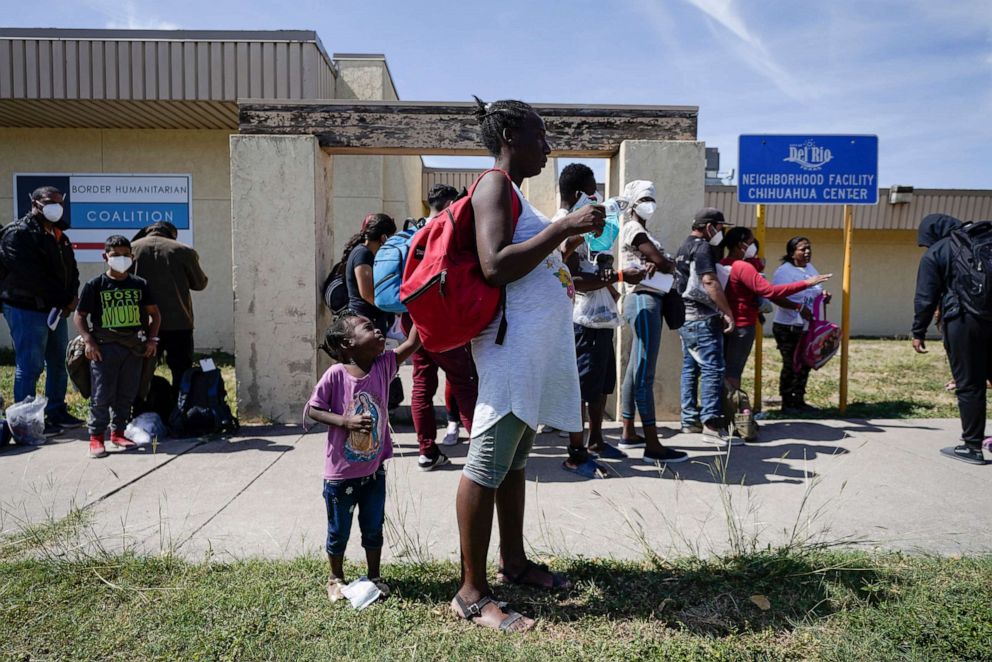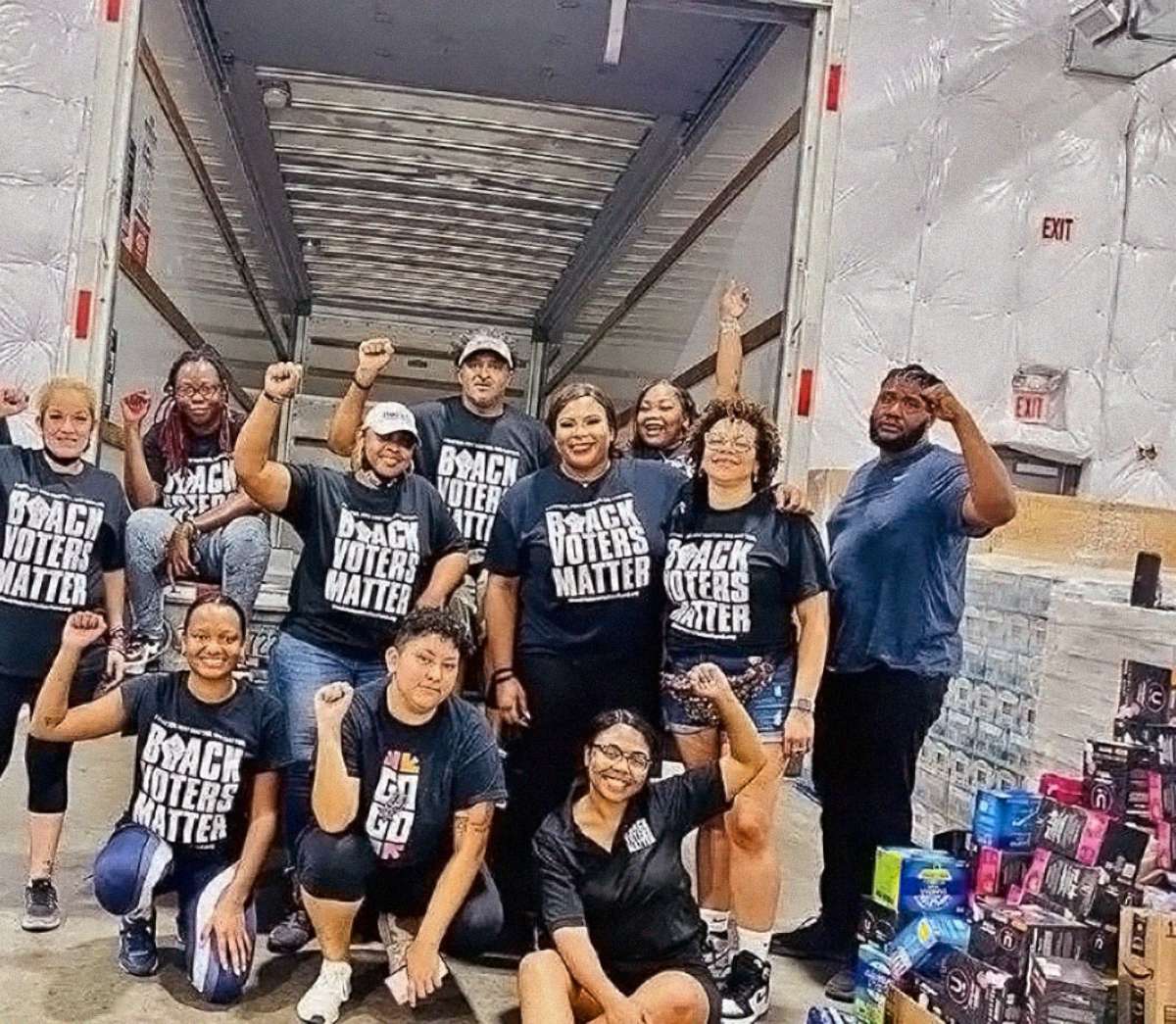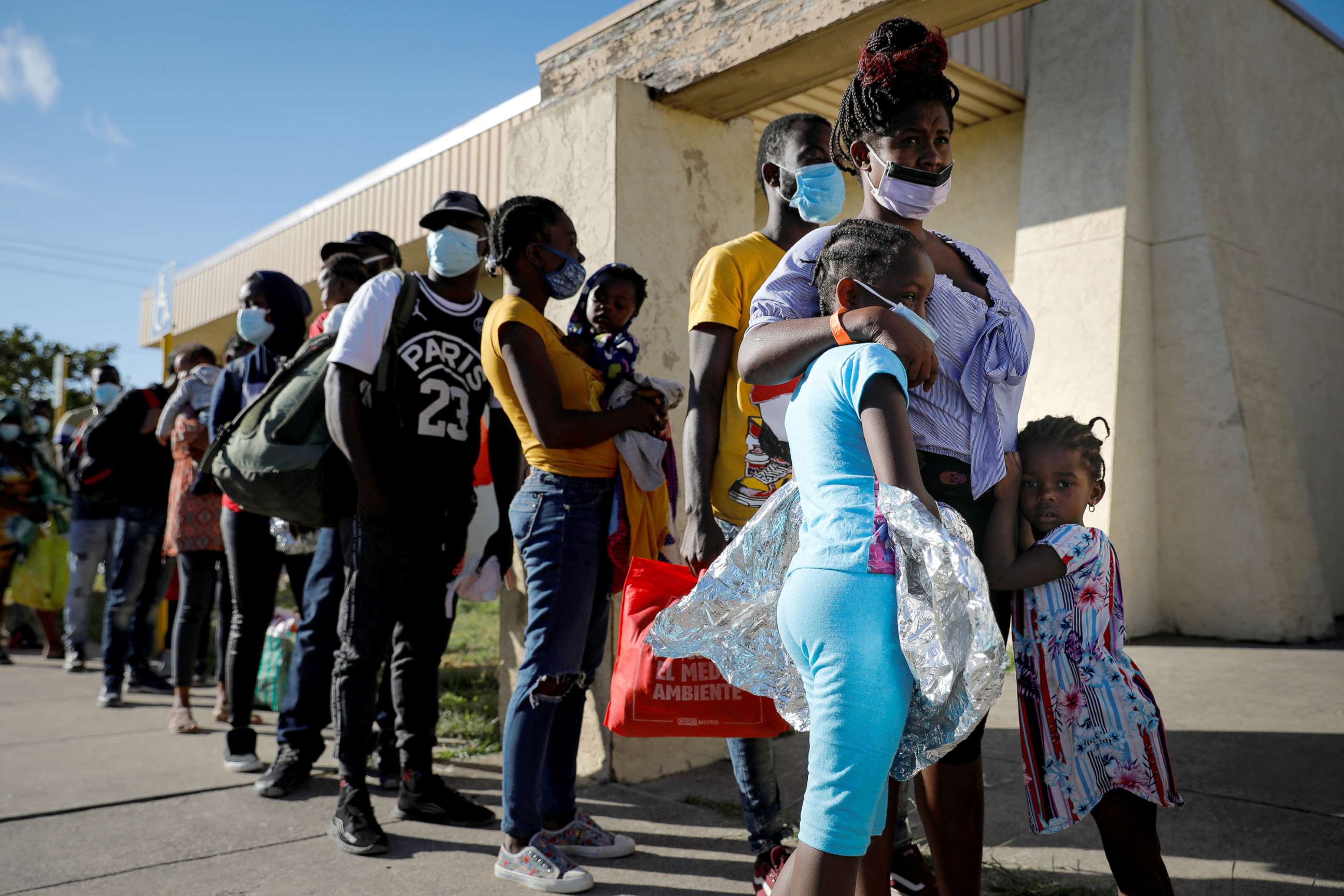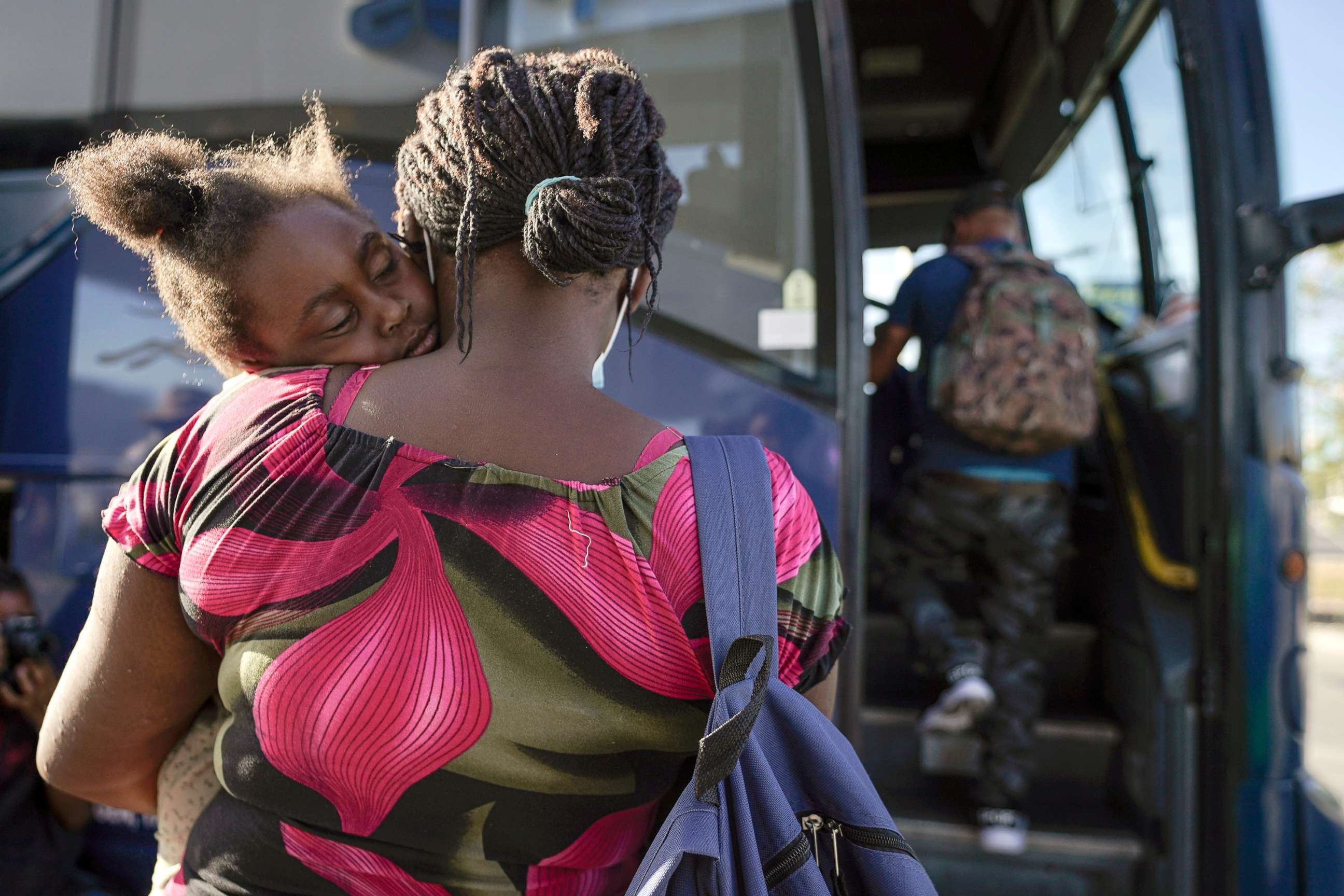Haitian migrants get help from Texas group rallying thousands of donations
Haitian migrants seek asylum to escape storms, earthquakes and political unrest.
Tired, anxious and awaiting a new place to call home, almost 30,000 migrants were found camping or attempting to cross the U.S.-Mexico border in Del Rio, Texas, the Department of Homeland Security reported.
The migrants, many of whom are Haitian, have trekked north through Latin America, through dangerous conditions to escape earthquakes, the worsening effects of climate change, and political unrest. Many were left without basic necessities, so the Texan activist group Black Freedom Factory answered their calls for help.
The group put out calls for money, donations and other resources to help ease the burden for migrants seeking asylum. They collected, delivered and distributed tens of thousands of supplies to migrants in the United States and Mexico.

"We collected over 62,000 units in less than 48 hours last week," Kimiya Factory, executive director of Black Freedom Factory, said. "People started to donate items from all over the country because the biggest question was, 'how can we help if we're not in Texas and we're not near the border?' So we wanted to bridge that gap for people in the U.S. who care about immigrants and know what they contribute to our country."
According to DHS, about 17,400 migrants are awaiting their turn to claim asylum in the U.S. Another 2,000 people were loaded onto planes and deported back to Haiti. And 8,000 more returned south to Mexico.
Factory said the initial ask for donations quickly grew from a statewide initiative to a nationwide movement, as people across the country banded together to get these families what they need.
They made an online shopping wishlist and within days, she said that her team was receiving hundreds of boxes a day.
"We're bringing everything from clothes to baby supplies, hygiene products, menstruation items, food, snacks, nonperishable items -- anything you can think of has been donated," Factory said.

The group is following the trail of where Haitians have been deported to or where they've been sent in the U.S. to help them get settled into their new lives.
Interacting with the migrants has been tough for Factory and her volunteers. They say the migrants are exhausted, and the children are scared about what is next for them -- will they return to a country they don't remember? But Factory said that the donations, the services and the kind gifts from donors makes the faces of migrants light up with joy and relief.
"Haitians are arriving with no clothes, no shower, so it's really nice to see where [donors'] resources are going," Factory said. "Their money and their donations are going to the right place."
Viral photos of Haitian migrants being chased, grabbed and thrown around by Border Patrol agents in the Rio Grande highlighted the unrest at the border, and the Biden administration and the DHS faced backlash for its treatment of the migrants.
Border Patrol has temporarily stopped using agents on horseback against migrants. The agents involved in the incidents have been placed on administrative leave pending the results of a DHS investigation.

"It was horrible to see what you saw -- to see people treated like they did -- horses nearly running over people, being strapped," President Joe Biden said in response to a question from ABC News Congressional Correspondent Rachel Scott about taking responsibility for the Border Patrol's actions. "It's outrageous, I promise you, those people will pay. There is an investigation underway now, and there will be consequences. There will be consequences. It's an embarrassment, beyond an embarrassment. It's dangerous. It's wrong, it sends the wrong message around the world, sends the wrong message at home."
Biden was also criticized for deporting thousands of people without offering them the right to request asylum in the U.S.
However, Biden defended this action by invoking Title 42, a part of U.S. public health code that "allows the government to prevent the introduction of individuals during certain public health emergencies," like the coronavirus pandemic.
But Factory says that she and her dedicated team of volunteers did what they felt was necessary to do, when they saw Black lives being threatened at the border.
Black Freedom Factory began as a tool for Factory and other activists in the San Antonio area to address the issues of racial inequality hands on in their very own community.
From gerrymandering, to gentrification, to economic inequality -- the Black Freedom Factory collaborates with other local leaders, including public officials and other grassroots movements helping change the culture.
"This further proves the anti-Blackness that is rampant in the United States, and that the pictures that we saw [of] Black migrants being whipped is indicative of the conversation about Black lives mattering," Factory said. "Not just on U.S. soil but internationally, and as a Black community, we will not stand for the triggering and grotesque images that we constantly have to encounter with our people being harmed."

Now, the Black Freedom Factory, along with the organizations they parttner with throughout the nation, say they hope that donors and volunteers continue this energy -- as the crisis at the border and the inequality faced by migrants and aslyum seekers continues.
"I hope people do not lose the sense of urgency that they felt when this news broke," Factory said. "I hope that you know we continue to redistribute our wealth and our privileges as American citizens. And I hope that we understand that immigration issues and crises are everybody's issue and crises, and it's our duty to make sure that the democracy functions upon those values."
"This makes you more aware of the privilege that we have as Americans," she added.




